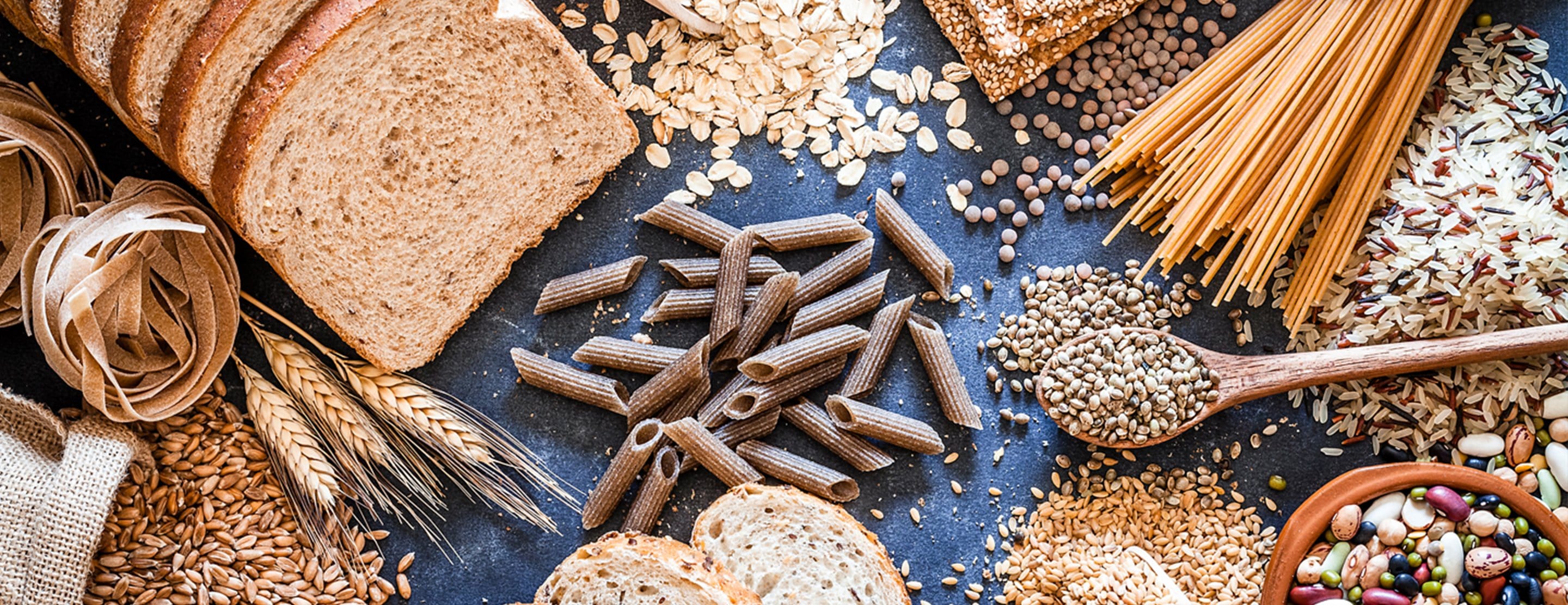Carbohydrates are naturally occurring sugars, starches, and fibers found in food products. Like fats and protein, carbohydrates are a macronutrient, meaning a nutrient that must be consumed in relatively large amounts as fuel for the body. In fact, you may have heard that carbs are the body’s primary source of energy.
So if carbs are so highly praised, why are we telling you to avoid carbs like the plague after bariatric surgery? First, it is important to understand the role that carbs play in the body and the different types of carbs because some are on the good list, and others are on the naughty list.

What are Carbs?
Carbs come in three forms — sugar, starches, and fiber. When reading a nutrition label, the amount of “total carbs” listed is a combination of these three types. Often, when we think of carbs, we think of sugar—that devilish food we all can’t get enough of! There are two types of sugar:
- Naturally occurring sugar – milk and fruit
- Added sugar – desserts, juices, and anything else that tastes great
Common sugar names are dextrose, fructose, lactose, honey, corn syrup, agave, turbinado, and table sugar. Shop Pyure’s selection of sugar-free products.
Foods that are high in starch are whole, minimally processed foods to include corn, squash, potatoes, lentils, beans, oat, barley, rice, whole wheat, and more. Finally, fiber is the best type of carb that you can get because it has zero calories due to it not being digested, and aids in passing food through the body. Fiber can be found in fruits, vegetables, whole grains, and supplements.
When calculating your carbohydrates, we teach our patients to calculate net carbs, which is a result of subtracting the fiber from the total carbs.
Types of Carbs
All carbs fall into one of two categories – simple versus complex. The main difference between these two types of carbs is their chemical structure and how easily they are absorbed.
Complex Carbs
Complex carbs are those starchy, high fiber foods that contain vitamins and minerals. They are known as the “good guys” and provide sustained energy levels compared to their counter-part, simple carbs.
 Simple Carbs
Simple Carbs
Simple carbs are almost always bad for you (except in cases where you need additional energy before endurance events) as they contain only one or two forms of sugar and no vitamins or minerals. The body easily and quickly processes simple carbs as sudden bursts of energy. Your body does not become full for long after eating these “empty calories.” This can result in weight gain if there is an excess consumption of simple carbs.
This explains why there is a stigma with carbohydrates because most often, when we think of carbs, we think of donuts, cookies, chips, and bread (simple carbs), not flaxseed, oats, whole grain bread, and legumes (complex carbs).
Effect of Carbs on the Body
Both types of carbs (simple and complex) are absorbed relatively quickly and used as energy for the body. However, the difference is that simple carbs provide short bursts of energy, while complex carbs provide a more sustained energy level.
The consumption of simple carbs can lead to a sudden spike in blood sugar levels, which can be dangerous for people with diabetes who need to maintain their blood glucose. When the blood sugar levels increase, the pancreas produces more insulin, which promotes fat storage. If you are not using the increased glucose levels through exercise, it will turn into fat and can cause weight gain.
The study of how rapidly and to what degree carbs raise blood sugar levels is called the glycemic index. High glycemic foods (simple carbs) raise blood sugar levels very high and very fast, whereas low-glycemic foods moderately raise blood sugar levels over a sustained period of time. Studies have linked high-glycemic foods to medical conditions such as diabetes, obesity, heart disease, and cancer.

Carbs after Weight Loss Surgery
Carbs after weight loss surgery are not terrible. However, it is essential to understand the difference between good carbs and bad carbs and eat them in moderation.
Good carbs are naturally occurring sugars that are low in calories and high in fiber such as apples, legumes, and vegetables. Contrary, bad carbs are often processed or packaged and are high in calories and low in fiber. They are typically what you think of when you hear the word “carb”—desserts, sodas, bread, pasta, and chips.
We recommend that our bariatric patients who are greater than a year out from surgery stick to 50 to 75 grams of carbs a day and, more importantly, less than 15 tsp of sugar a day for sustained weight loss.
After your weight loss surgery procedure, you may begin feeling a bit sluggish. This could result from a carbohydrate deficiency where your body is not getting enough fuel from your food sources. This is especially true for relatively active patients.
If the body has insufficient carbohydrate intake or stores, it will consume protein for fuel. Similarly, people who don’t consume enough carbohydrates may also suffer from insufficient fiber, which can cause digestive problems and constipation. Therefore, if you do begin feeling mentally and physically weak, we would encourage you to incorporate more HEALTHY, complex carbs in your diet. You can also consult your bariatric surgeon or dietitian if you are concerned about potential weight gain.

 Simple Carbs
Simple Carbs